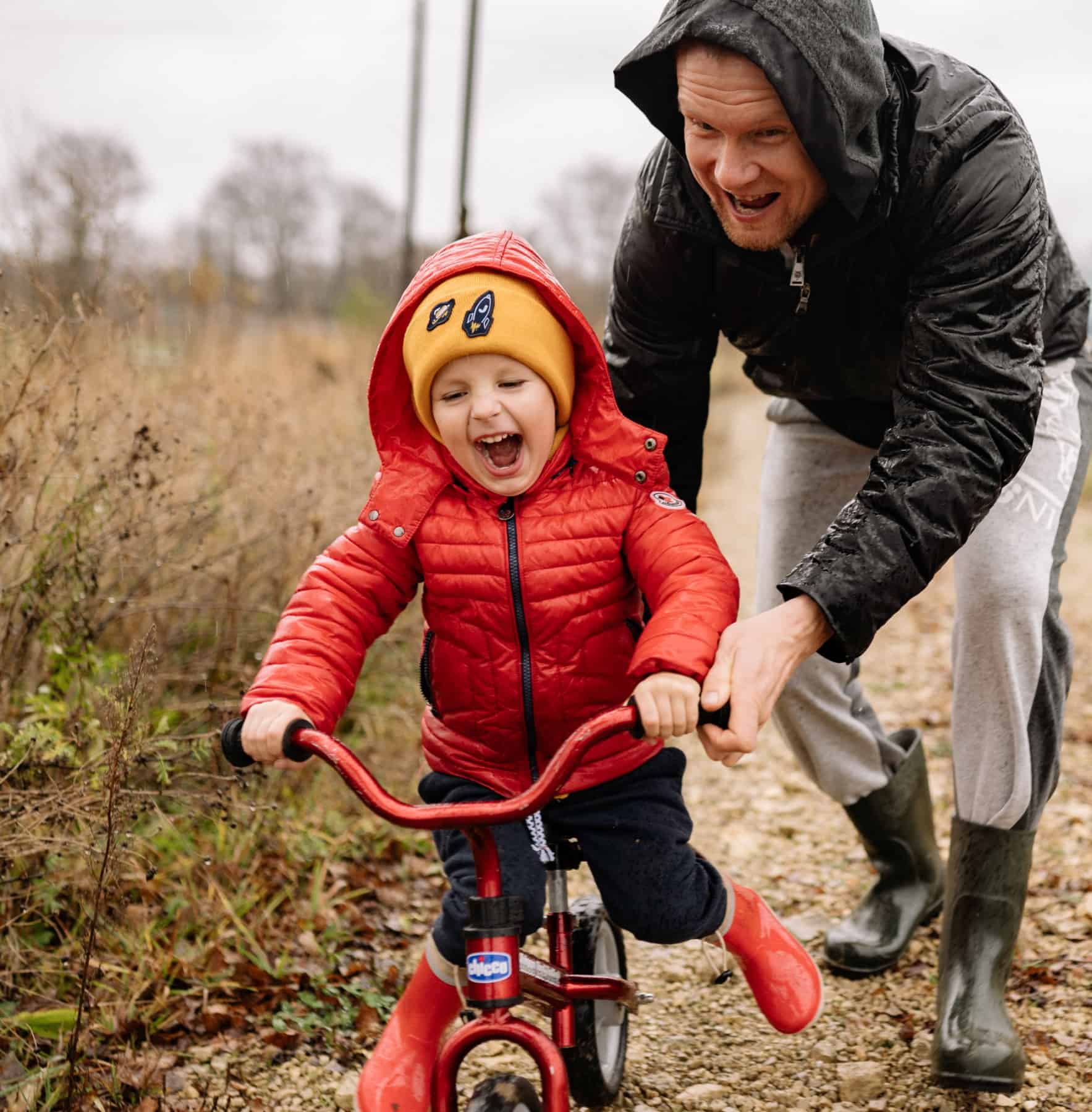By MSc Gvapo Tripinovic
Shortest answer: An overprotective dad is a parent who wants to protect his child more than is necessary or reasonable. Not to be as such, control yourself.
Academic Detailed Answer: An overprotective dad refers to a parent who constantly tries to control a child’s actions, way of thinking, and surroundings. Usually, the dad does these safety and instructional measures with the best intentions to ensure their child’s well-being. Still, their efforts can be intrusive, harmful, and stager their child’s development and reaching full potential.
To understand this better, check the eight most common signs below that you are an overprotective dad and what that might cause.
In the conclusions, you can find how to find out if you are an overprotective dad and what to do about it.
8 most common signs that you are an overprotective dad:
1. Overprotective dads will experience intense anxiety whatever their children do, wherever they go, or whomever they play with. In those situations, they will do whatever they see necessary to protect their child or to play only with the kids they find suitable. This can easily lead to snowplow parenting (https://parentingdad.com/2022/08/30/father-role-as-a-listener/) which is usually disastrous for children in their teen and young adult age.
2. Overprotective dads will experience an urge to take over their child’s homework or spell everything to help them get good grades. Although helping is good, an overprotective dad will not see the difference between helping and removing all obstacles for his child. By doing this, he is making children unprepared to face any challenge in life.
3. Overprotective dad will relentlessly check on his child when not in his direct vicinity by a “parenting app,” smartwatch, or mobile phone. To be sure his child got it all right, he will constantly remind it about all potential hazards and to avoid any danger it can see or sense. He will not know how to explain the difference between real, possible danger, and imaginary one, thus installing fear and insecurity in this young child.
4. An overprotective dad will try to take over all essential responsibilities from his child. In his mind, he is doing everything in his power to make his child’s life comfortable and without stress. To shelter them from everything for as long as possible.
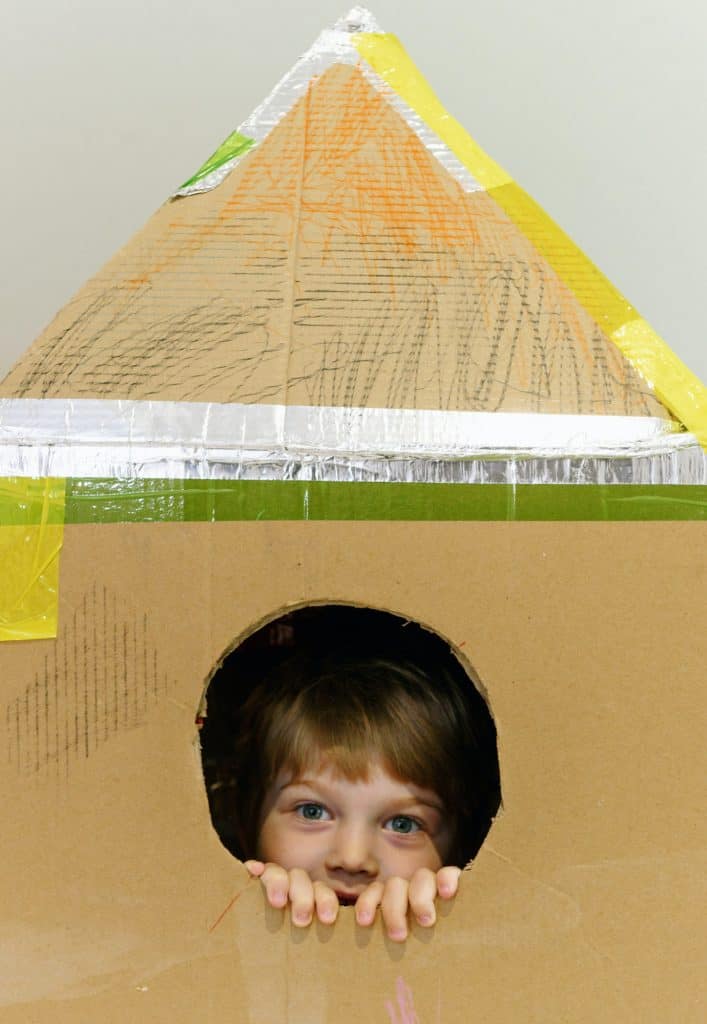
There are two main long-term side effects of this:
- He is building an extreme dependency a child requires from someone else. In the beginning, that will be an overprotective father, but after, it will be someone other who is dominant and potentially abusive.
- An overprotective father will reach his limits. Sooner or later, he will “hit the wall”. He will not be able to manage all his professional and parenting obligations at once due to the “bun out effect” (Burnout Definition & Meaning – Merriam-Webster). Next, it is easier to snap and accuse his child of not doing anything to help, not being grateful, being useless, or something worse. Once said, these words can not be removed and permanently affect his beloved child.
Instead of making their kids capable, independent, and building up a strong bond, an overprotective dad will do the exact opposite. He will make his children confused, lazy, seek dependence from someone else, and alienated from him. These situations are very grave and confusing for the children as they can’t understand these psychological switches on their father.
Under these circumstances, a child will become confused, unsecured, unable to decide for themselves, or rebellious in an attempt to escape that unhealthy and constrained environment.
5. An overprotective dad will personalize his child’s love and other feelings. This can start naively with typical questions such are: “Whom do you love the most in the whole world?” and then provide the answer that that is you, the child’s father. Although this doesn’t seem wrong, the following steps are.
In the start, that is a child’s love for their father compared to the “rest of the world.” Soon after, love needs absolute proof over the rest of the wider family and anyone else. The final stage is that unconditional love for dad needs to eclipse even that for mom. An overprotective dad will, consciously or not, use this forced and constant teaching so the child doesn’t think other options are possible or acceptable. Only then will an overprotective dad be sure that no one will mess with his child’s emotions and undermine his father figure role. Only then will he be able to guide it to the right path and the best life choices.
Obviously, this is entirely wrong, but man can easily slip into this trap, especially in patriarchal and conservative environments.
6. An overprotective dad will constantly try to plan all their children’s social activities and choose with whom they should interact or not.

It would be great if the world were all sunshine and unicorns. You turn on the TV and see all the reports about uncertainties, crime, collapsing economies, epidemics, or something worse. You name it. All the bad things are just around the corner. Being faced with all this, a good dad can feel the pressure to hover over his child. He would like to lead it to become firm, capable of surviving in this crazy world and succeeding. The best thing to do is to plan your kid’s activities carefully. Help them become more competent for school and careers. Help them become active by signing them in some good sports clubs and giving them the best organic food to stay healthy. Help them find and choose only the best friends from good families. What can be wrong with that?
All the above works well until when it doesn’t. When a dad starts micromanaging all aspects of his kid’s life, you are a hovering or helicopter dad (https://www.parents.com/parenting/better-parenting/what-is-helicopter-parenting/ and https://www.business-standard.com/article/news-ians/strict-parenting-puts-kids-at-low-self-esteem-risk-114092300195_1.html).
An overprotective helicopter dad will focus more on what he thinks is suitable for his children leaving aside everything else. Even when it will hurt his child’s ability to express themselves, do what they would love, fight for themselves, and be happy.
The easiest way to describe this is by using an old proverb: “Road to Hell is paved with good intentions.”
7. An overprotective dad will do everything in their power to discourage or prohibit their children from taking any age-appropriate risk.
No one sane wants their kids to be in danger. Especially not a good dad who considers keeping his child safe is one of his essential roles. Yet, the children will not learn anything if they do not face some new situation and challenge. It is great learning from other people’s experiences. Still, until your kids face them personally, they will be partially or entirely unprepared for them.
No theory and planning process can replace the first-person experience. “No plan survives first contact with the enemy” is the famous statement of Prussian Field Marshal Helmuth von Moltke the Elder. It bears the whole truth.
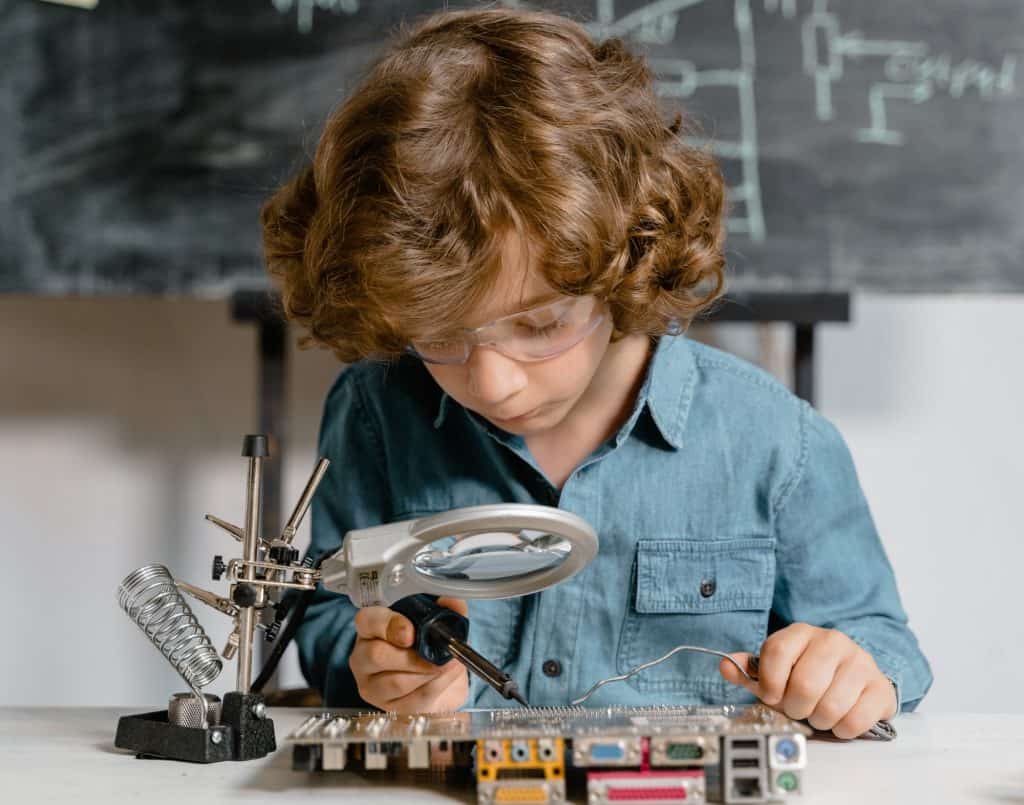
Even in the most controlled environment with just a few variables, experiments go wrong many times before the scientist understands everything. How can a young child learn from the theories and examples a good intentional dad presents? It simply can not. Yet the issue is that an overprotective dad will refuse to accept this fact and try to force knowledge and awareness into their children. This can lead to a traumatic effect as the children will try to understand this not for their own sake but to please their father. Or simply to lie to him, which can become a habit that will alienate them both.
8. An overprotective dad will dedicate their lives to protecting their children from failing.
You have already paid half of the money for the karate summer camp. Still, your child abruptly decided he wanted to attend dancing classes. Your child is good at football but wants to change to basketball. Your son likes a girl who attends drama classes and wants to be there, although you are fully aware that math is where his strength lies.
I am the parent. The one with more knowledge, life experience, and wisdom. At least compared to my eight-year-old son. What my child can know is what is best for him. I will make the hard decision, and he will grunt a bit, but later, he will thank me for what I did. No parent wasn’t in this kind or some similar situation. We have to lead our children and not let them waste their life on temporary unimportant things. The end goal is what is the more critical and not the small stuff. But what happened with the small things that are making our lives happier and more meaningful? Should we take that away from our children?
Sometimes a good dad must make hard choices for their children. That is why he is a parent, after all. Still, absentmindedly limiting our children to make their decisions, explore, learn, feel, and develop into self-aware beings is much worse.
What statistics say – how many of us are overprotective parents:
- 62% of parents report that they can be “sometimes” overprotective.
- About half of parents believe they should be more involved in their child’s life.
- Almost half of parents say they would be disappointed if their child was an average student.
- Over half of parents report that parents cannot be too involved in their child’s education.
- 85% of parents have talked to a teacher about their child’s academic progress.
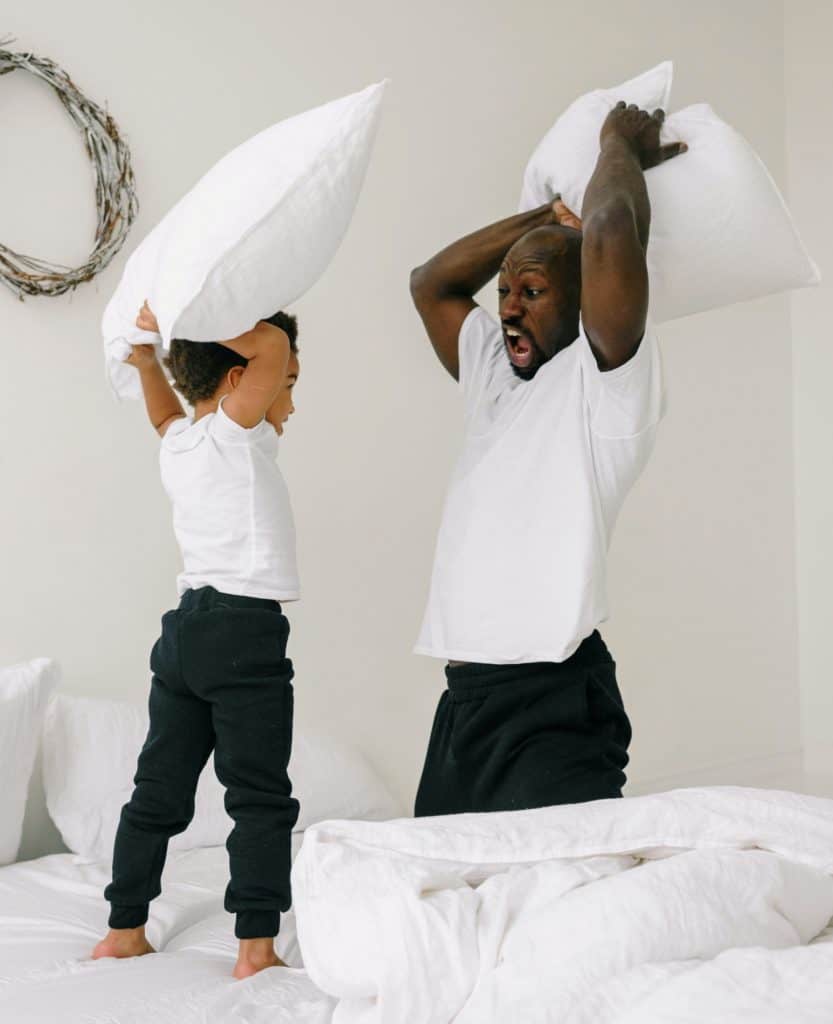
Conclusions:
If you are shaking your head with many question marks above your head, be assured that you are not alone. Myself included, as I am guilty of all the above eight signs of an overprotecting dad. Like you, I want my child to be safe, healthy, happy, and an achiever. Yet, sometimes it is hard to put the line where we are doing a great job as a dad or crossing the line and harming our children this way or another.
From my experience, this can easily happen when we have difficulty managing all the tasks and obligations we have on the job, as a partner, as a father, and with anything else. Then we try to compensate for our “low periods” by focusing as much as we can on the ones we find the most precious – our children. We should be careful and constantly remind ourselves of that. Identifying the moment we start our overprotectiveness is half of the problem, but it is a good start. Restraining ourselves is the second and more challenging half.
The earliest we start, the better it is. If you are a father of a young kid like me, let it do something challenging but safe. If your child is experimenting without putting itself in any danger, let it go. Let it see and learn from his actions and the consequences of these actions. It will be good for both of you.
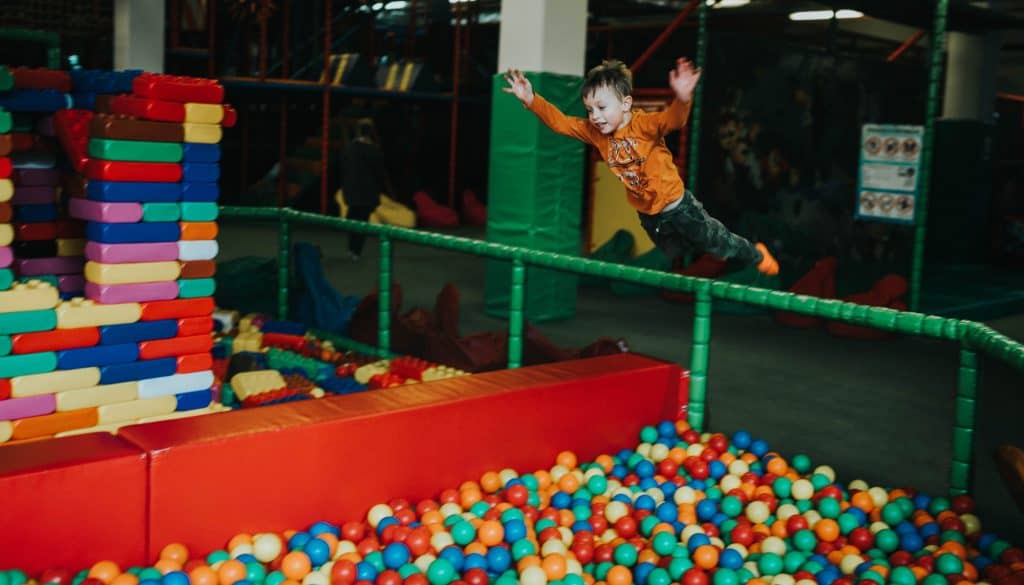
You will face countless situations where you have invested in some of your child’s activities, time and money, and have already started to plan a glorious future. Then, suddenly, your child loses interest in that and would like to start something completely new. When you see that your kid is not made for that new interest or has it because of someone else they like or fancy, it will be harder to approve their choice. But you should do it anyway. Let your child make their choices and decisions, pursue their interest and explore the options the world has to offer. It will help them build up their freedom and become more capable and independent.
I remember when my Adam went to Judo. His club was the best we could find in our area. Both coaches were great professionals who supported him greatly. They told me he was very talented and could achieve great success within just a few years. I took photos and videos of each training and was very proud. Adam often asked his coaches and me if he could get some extra hours, and we wanted to grant him that after the summer break. The summer break passed quickly. I eagerly asked Adam if we should ask his coaches right away for these extra training sessions he wanted, but something changed. He was utterly uninterested in Judo anymore. I was in shock. I tried to persuade him not to throw away everything he had done in the past year and a half, but I soon understood that that would be something I was forcing on him.
Not long after, we met his school friend who had just started attending the newly opened Tae-kwon-do club. The building was far worse than the one of the Judo club. There was only one coach; he was young and not so experienced, but Adam wanted to try. Fast forward to the year after. The coach proved excellent; the club has a new space similar to the one of the “old” Judo club. Most importantly, Adam is genuinely enjoying it.
From what I have learned, it’s normal for all the dads to experience signs of overprotection from time to time, and that’s entirely ok. It’s not ok if you have more or all the signs all the time.
It would be best if you listened to your child, what it has to say and what it feels. And above all else, you should correct your parenting habits if you become aware they are bad for your child. Do your best — one step at a time.
As a father, you want to protect your child from anything dangerous or harmful. One of the primary roles of a father is to provide safety and to be a mentor for his child. Complying with all the best practices might be difficult if your environment and neighborhood are unsafe. Then, a few extra protection layers might be necessary to keep your child from harm.
Yet, as much as we would like to keep it under the bubble, that’s impossible as we don’t own the world. The best we can do is keep them away from direct harm and teach them about the reality surrounding them. Teach them to understand their world and the people they will probably interact.
A dedicated father will make a bunch of mistakes for sure. There is no way around it. But you can learn and adjust your parenting style on the go. Show your kid that you will always support it, show him love and be open to his interest and stories. Have always communication channels between you open and be ready to listen. And when you listen, make your child feel that it is heard.
